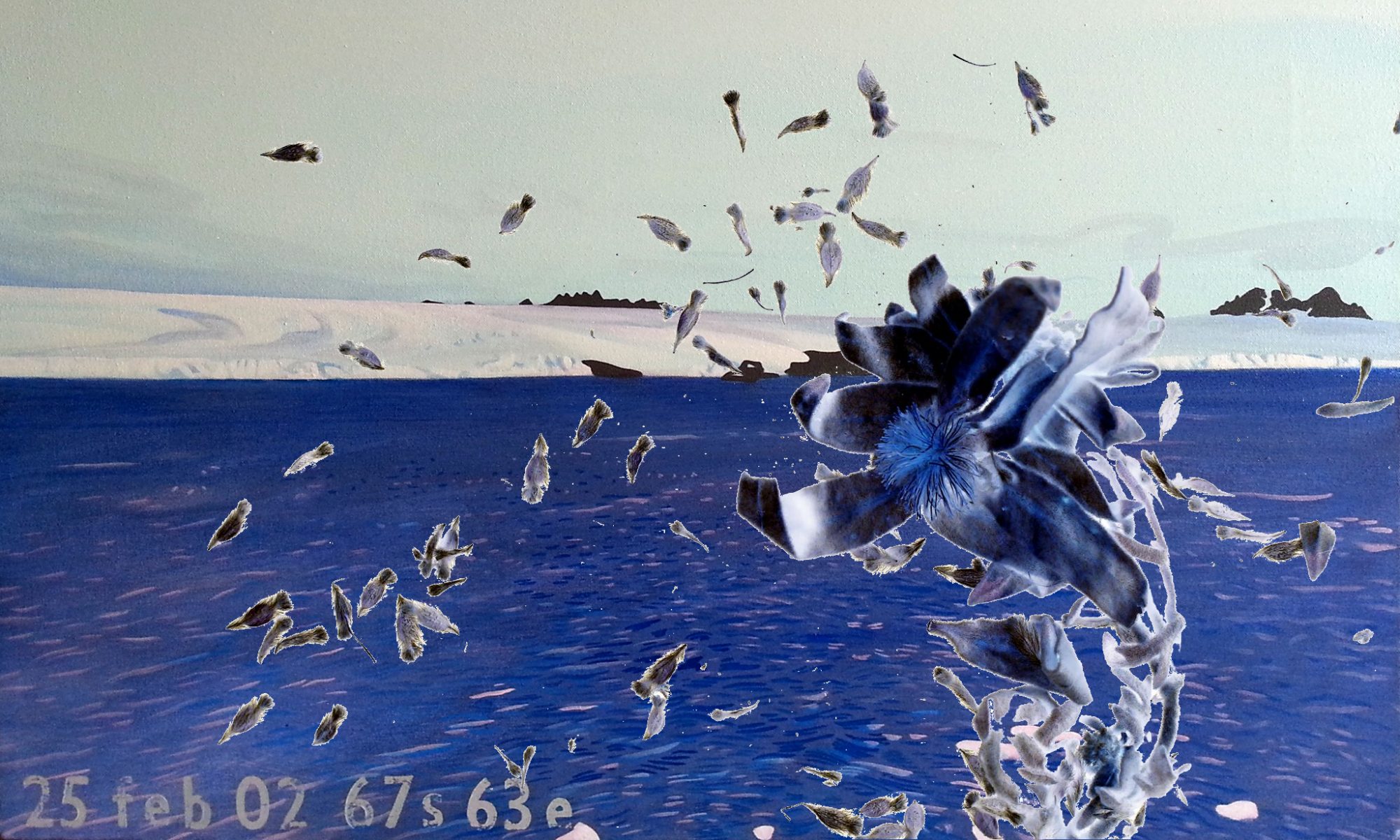Melinda Mueller’s, What the ice gets: Shackleton’s Antarctic Expedition 1914-1916 (2000) gives voice to the men of that journey through poetry. To each man she gives a different, recognizable voice, with its own literary style. Through these voices we grow to know their different perceptions of shared experiences.
Gary Holthaus writes in the Foreword that:
Harry McNeish and Frank Hurley speak in couplets, the end-rhymes so carefully chosen they are subdued, so unobtrusive you can read a whole page before you become aware that the rhyme is there, never a hint that the form is driving the poem, or that the word was chosen because it rhymes’:
Well ’tis all up with the ship the Ice has cut clean
Through her and next thing the Boss sends Mr CreanTo do away with the cat as the Boss says we can keep
But two pounds each besides our clothes. He makes a heapOf his own things & shows us gold coins in his palm
Then throws them down & tears the 23rd PsalmOut of his Bible and lays his Bible on the Ice to make
His point. Well I guess each man is going to takeWhat he values most…
Mueller tells us in the Preface that her connection with Antarctica began early, through her childhood friendships with the grandchildren of Ernest Shackleton. ‘great stories’, she says, ‘have that capacity…to wait for us to catch up with them again.’ And so it turned out that she wrote What the ice gets while recovering from chemotherapy, thinking ‘if the men of the Endurance could do what they had done, I could very well get through what I was facing. I would turn to Hurley’s photographic portrait of Frank Wild, in which Wild looks what they said he was – imperturbable down to his bones – and borrow some of that calm.
